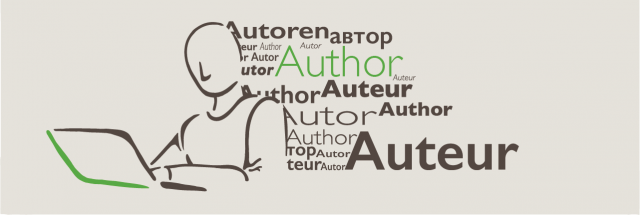Get the culture right and trust in journalism will be restored
argues Michael Smith, executive director of the media ethics think-tank The International Communications Forum.
 The News of the World has apologized. In its final editorial in its final edition, after 168 years of publication, it writes: ‘Quite simply, we lost our way. Phones were hacked, and for that this newspaper is truly sorry. There is no justification for this appalling wrong-doing. No justification for the pain caused to victims, nor for the deep stain it has left on a great history.’
The News of the World has apologized. In its final editorial in its final edition, after 168 years of publication, it writes: ‘Quite simply, we lost our way. Phones were hacked, and for that this newspaper is truly sorry. There is no justification for this appalling wrong-doing. No justification for the pain caused to victims, nor for the deep stain it has left on a great history.’
For many it was a sleaze paper, muck-raking in other people’s private lives. The paper appealed to the public’s prurience. Many will say good riddance. For some it was a genuine, effective campaigning paper on social issues, exposing child labour and paedophilia, and supporting soldiers and their families in Afghanistan.
There is something refreshing about a whole-hearted, humble apology. It generates sympathy. The paper writes: ‘We praised high standards, we demanded high standards but, as we are now only too painfully aware, for a period of a few years up to 2006 some who worked for us, or in our name, fells shamefully short of those standards.’ The editorial distances its recent staff from past corrupt behaviour.
Press and public alike talk about ‘the culture’ of journalism, just as they talk about ‘the culture’ of banking. What culture really means is the moral climate--what one News of the World journalist described on Channel 4 News at the ‘moral compass’--which went AWOL at the paper; a moral compass and culture in which individuals are nurtured and decisions are made.
The culture of an organisation is determined by leadership -- the tone at the top. Staff need to be left in absolutely no doubt about the lines of acceptable behaviour and the consequences if they cross those lines. Culture is also determined by the prevailing moral climate.
One dictionary describes culture as ‘the total of the inherited ideas, beliefs, values, and knowledge, which constitute the shared basis of social action’. It also describes culture as ‘the cultivation of plants, esp by scientific methods to improve stock or to produce new ones’.
Get the culture wrong and the plants die. Get the culture, the values, of organisations wrong and they also die. Get the culture right and they grow, as plants, as organisations, as individuals.
The culture of individuals--the ‘inherited ideas, beliefs, values, and knowledge’--is nurtured at an early age. This is what you do; this is what you don’t do. This is acceptable; this is not. Training in the ethics of journalism should be paramount at schools of journalism, knowing right from wrong and knowing how to come to ethical decisions in grey areas of dilemma and doubt when the issues are not cut and dried.
The bottom line, and competition for audience share, at times of breaking news, too often blurs the line. But get the culture wrong and the public’s trust is destroyed, as happened with the banks and too often happens with the press and media. Get the culture right and the public’s trust is retained.
The basis of trust lies in personal integrity. Destroy that integrity and trust is destroyed. Subterfuge and corruption, driven by the adrenalin rush of competition, scandal and the bottom line, destroys integrity and trust. The integrity of individuals within organisations is essential for organisations to survive and for democratic society to flourish. The media--the fourth estate in democratic societies--has a unique role in acting as mirror, searchlight and whistleblower on society, calling governments, organisations and individuals to account. When it fails to do so for itself a valuable ingredient of democracy is lost.
The Sarajevo Commitment, published by the media ethics think-tank the International Communication Forum, calls for best practice in the media. Media professionals are encouraged to sign it as a commitment for themselves. Published at a media ethics forum in Sarajevo in 2000, following the Balkans War, the Sarajevo Commitment has been described by US professor journalism Jay Rosen as having the same ringing tone as Lincoln’s Gettysburg Address.
Part of its text reads: ‘We undertake to apply and demonstrate in our own lives the values that we hope for, and often demand, in others. We shall confront hypocrisy, oppression, exploitation and evil, firstly by our own clarity and straightness and then through the means by which we reach our audiences. We are unlikely to be perfect, but we shall aim to be truthful and free of guile, selfish ambition, perverted behavior and deception.’ Guile and deception were what did it for the News of the World.
‘Self-regulation’ in the media is often the call of the day. No one wants the kind of censorship imposed by autocratic regimes. Demonstrating in our own lives the values that we demand in others implies a willingness to turn the searchlight inwards. For the means too often determine the ends. Foul means at the NoW determined its end. Advertisers left in droves and the owners had little option but to close it.
That said, the buying public also has its responsibility. We choose what we want to read. The public, says novelist Will Self, has ‘a ubiquitous appetite for what the gutter press peddles’. The media has a responsibility to act with integrity. But in the end we get the media we deserve.
Michael Smith is an executive director of the International Communications Forum: www.icforum.org

